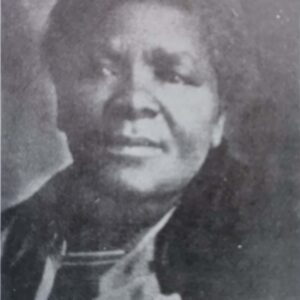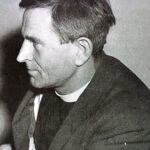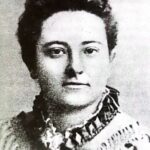
CHARLOTTE MAXEKE
Charlotte Maxeke (1874-1939) was one of South African’s first prominent African Women leaders, perhaps best known as the first President of the Bantu Women’s League of South Africa.
The Bantu’s Women League was initiated in the 1913-1914 period of the South African Native National Congress (from the 1920s the African National Congress or ANC) as an adjunct organization for women. Maxeke’s life experiences, including opportunities to travel abroad and to take a college degree in the United States, set her well apart from the vast majority of African women in her time.
Born Charlotte Manye in 1874, Maxeke was a gifted vocalist, and this talent led to an opportunity to join the African choir and tour England. Following its appearance in England, the choir crossed the Atlantic to New York, where it broke up. Maxeke, aided by American friends and a scholarship, attend Wilberforce University in Ohio, from which she took a B.S. in 1905.
There, Maxeke met her future husband, Marshall Maxeke, and the two later returned to South Africa they established a school. Marshall Maxeke was a pastor, and both Marshall and Charlotte were members of the African Methodist Episcopal Church, one of the first African separatist churches. Cheryll Walker notes that Marshall was a member of the ANC from its starts in 1912, which provided Charlotte with an entree to that world as well.
Maxeke’s prominence was cemented in her anti-pass law activities, which focused on the extremely restrictive pass laws in the Orange Free State. Maxeke was a coordinator of these protests in Johannesburg, leading a delegation of women to meet with Prime Minister Botha (q.v.) in Pretoria 1918. Maxeke attempted to broaden her political contacts during this time and made some initial contact with the Industrial and Commercial Workers’ Union (ICU) in the early 1920s.
 Maxeke was employed in a number of responsible positions during her working life, first as head of her own employment bureau, later as a probation officer in Johannesburg. Maxeke attempted to utilize her experience of urban African conditions, coupled with her social standing as an educated, well-spoken leader in her community to bridge the gap between the black and white worlds in Johannesburg.
Maxeke was employed in a number of responsible positions during her working life, first as head of her own employment bureau, later as a probation officer in Johannesburg. Maxeke attempted to utilize her experience of urban African conditions, coupled with her social standing as an educated, well-spoken leader in her community to bridge the gap between the black and white worlds in Johannesburg.
She took some interest in the liberal Joint Councils Movement and spoke at a number of white women’s clubs in the 1920s and 1930s. She was also a popular speaker at African conferences and conventions. In the late 1930s, Maxeke was elected the first president of the National Council of African Women, affiliated with the All African Convention.
Maxeke was remarkable both for rare early life experiences and for her public prominence at a time when few African women enjoyed public lives outside their immediate community. Maxeke’s outspokenness and abilities made her a trailblazer for African women to follow, including Lilian Ngoyi and Florence Matomela, women who would more directly political roles in years to come.


